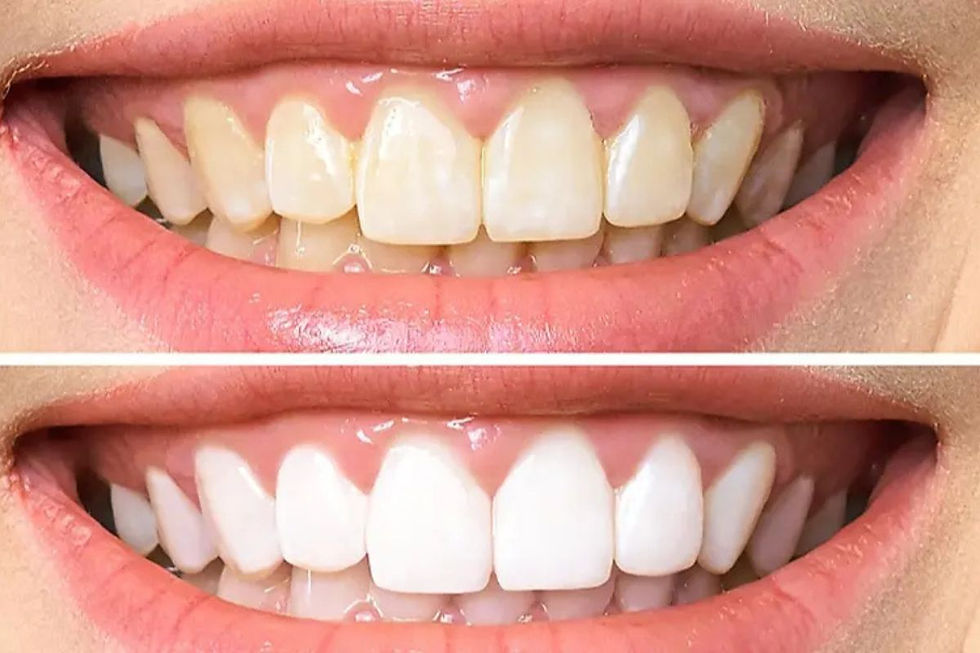What Are the Early Signs of Tooth Decay?
- meydenbeaurdental
- Aug 9, 2024
- 4 min read

Tooth decay is a common dental issue that, if caught early, can be managed effectively. Understanding the early signs can help you seek timely treatment from your dentist in Bellevue and prevent more severe problems. This blog will explore the early indicators of tooth decay, their implications, and how you can address them.
Recognizing the Early Signs of Tooth Decay
Tooth decay, also known as dental caries, starts with the breakdown of tooth enamel and progresses if not treated. Early detection is crucial for effective management. Here are some signs to watch for:
1. Sensitivity to Hot and Cold
One of the earliest signs of tooth decay is increased sensitivity to hot or cold foods and beverages. If you experience discomfort or sharp pain when consuming these items, it might indicate that the enamel on your teeth is wearing down. This sensitivity occurs because the decay exposes the dentin layer, which contains nerve endings.
2. Discoloration of the Tooth Surface
Discoloration on the surface of your teeth can also signal early tooth decay. Look for spots that are darker or have a brown or black hue. These changes in color typically indicate that the enamel is being damaged by decay. Regular visits to your dentist in Bellevue can help monitor and address these issues before they escalate.
3. Visible Holes or Pits in Teeth
As tooth decay progresses, it can create visible holes or pits in the teeth. These are usually found on the chewing surfaces of your molars or between the teeth. If you notice any such pits or holes, it's essential to consult with your dentist in Bellevue to assess the extent of the decay and determine the appropriate treatment.
4. Persistent Bad Breath
Chronic bad breath, also known as halitosis, can be a sign of tooth decay. When bacteria break down food particles and accumulate on decaying teeth, they produce unpleasant odors. Good oral hygiene can help manage bad breath, but persistent issues may indicate that you need a professional evaluation from a dentist in Bellevue.
5. Unexplained Toothache
A toothache is a common symptom of tooth decay, especially when it occurs spontaneously or without an apparent cause. The pain may range from mild to severe and can be constant or intermittent. If you're experiencing unexplained tooth pain, scheduling a visit with a dentist in Bellevue is essential for a thorough examination and diagnosis.
6. Pain When Chewing
If you experience pain or discomfort while chewing, it might be due to tooth decay affecting the inner structures of your teeth. This pain can be localized to specific teeth and may worsen with chewing or biting. A dentist in Bellevue can help determine if decay is the cause and recommend appropriate treatment options.
7. White Spots on Teeth
White spots on teeth can be an early indicator of tooth decay. These spots appear when the enamel begins to demineralize, often due to acid erosion. They are usually seen on the front or side surfaces of the teeth. Early intervention by a dentist in Bellevue can help reverse this condition and prevent further damage.
8. Gum Swelling or Bleeding
Tooth decay can also affect the gums, leading to swelling or bleeding. If you notice that your gums are inflamed or bleed while brushing or flossing, it could be related to underlying tooth decay. Proper dental care and a visit to your dentist in Bellevue can help address these symptoms and improve your oral health.
Preventing and Managing Tooth Decay
Early detection and management of tooth decay are key to maintaining good oral health. Here are some steps you can take to prevent and manage tooth decay:
Maintaining Good Oral Hygiene
Brushing your teeth at least twice a day with fluoride toothpaste and flossing daily helps remove plaque and prevent tooth decay. Regular oral hygiene practices can significantly reduce the risk of cavities and other dental issues.
Regular Dental Check-ups
Regular visits to your dentist in Bellevue are essential for detecting and addressing tooth decay early. Professional cleanings and examinations allow your dentist to identify any signs of decay that might not be visible to you.
Healthy Diet Choices
A balanced diet low in sugary and acidic foods can help protect your teeth from decay. Eating a variety of fruits, vegetables, and whole grains supports overall dental health
and reduces the risk of cavities.
Fluoride Treatments
Fluoride strengthens tooth enamel and makes it more resistant to decay. Your dentist in Bellevue may recommend fluoride treatments or fluoride toothpaste to help prevent tooth decay, especially if you are at higher risk.
Dental Sealants
Dental sealants are protective coatings applied to the chewing surfaces of molars to prevent decay. They are particularly beneficial for children and can be an effective measure to protect against early signs of tooth decay.
Understanding the early signs of tooth decay is crucial for maintaining good oral health and preventing more severe dental issues. Regular visits to your dentist in Bellevue, combined with good oral hygiene practices and a healthy diet, can help you manage and prevent tooth decay effectively. If you notice any of the signs discussed, don't hesitate to contact your dentist for a professional evaluation and treatment.



Comments